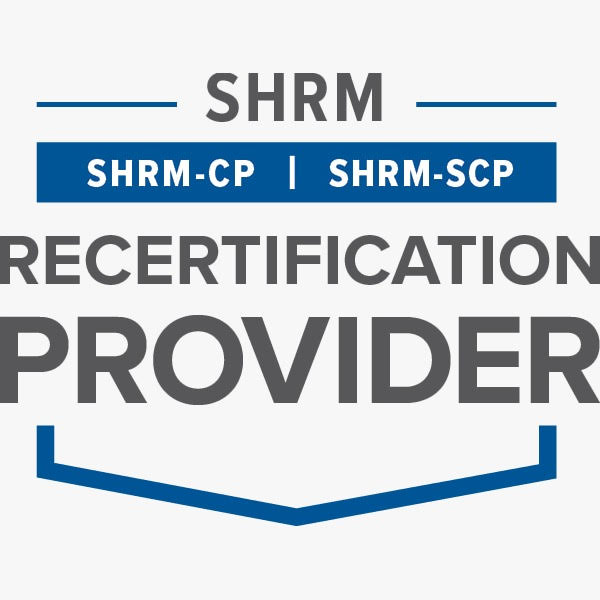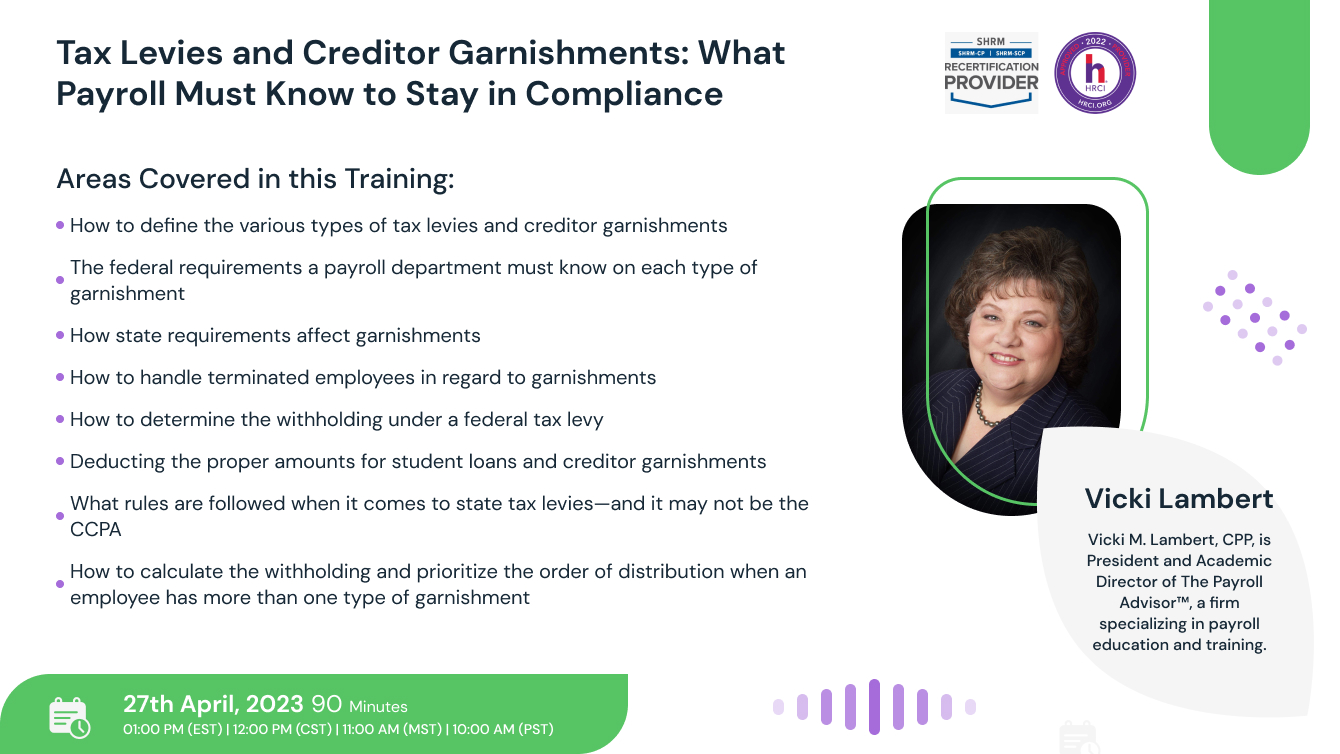Overview
Tax levies and creditor garnishments can be some of the most complex tasks required of any payroll department. If garnishments are not handled correctly, you may find yourself facing situations that become extremely costly both financially and emotionally. Courts, federal and state regulations, bureaucracies, lawyers and a multitude of other factors can complicate even the most basic procedures.
Add in the emotional turmoil that often accompanies garnishment orders and even small errors can become major disasters. The reality is that all of the people and entities involved tax levies and other types of creditor garnishments expect action from the payroll department.
Payroll must understand all the laws that apply towards processing these types of garnishments backwards and forwards. It is sometimes even up to the payroll department to catch and correct any errors that have been made by anyone else along the way! Precise and accurate compliance with garnishment regulation can help to reduce or eliminate the emotional and financial toll that can result from these unfortunate situations as well stave off any penalties that may result if processed incorrectly.
Areas Covered in this Training
-How to define the various types of tax levies and creditor garnishments
-The federal requirements a payroll department must know on each type of garnishment
-How state requirements affect garnishments
-How to handle terminated employees in regard to garnishments
-How to determine the withholding under a federal tax levy
-Deducting the proper amounts for student loans and creditor garnishments
-What rules are followed when it comes to state tax levies—and it may not be the CCPA
-Best practices for communicating with employees and issuing parties
-How to calculate the withholding and prioritize the order of distribution when an employee has more than one type of garnishment
-What to do with “payday loans” or what are known as voluntary wage assignments for creditors
-Best practices for processing garnishments in the payroll department
Why Attend this Training
This webinar concentrates on processing garnishments in the payroll department other than child support. It covers the federal rules for creditor garnishments, the IRS rules for federal tax levies, the various aspects of state tax levies, the key points for processing state creditor garnishments, how to handle voluntary wage assignments such as payday loans and student loans. It includes best practices for reconciling and processing the garnishments in the payroll department.
Sample memos for communicating with the employee concerning garnishments are included. Step-by-step math calculations are reviewed for tax levies and creditor garnishments. The IRS Form 668-W is reviewed.
Suggested Attendees
-Payroll Executives/Managers/Administrators/Professionals/Practitioners/Entry Level Personnel
-Human Resources Executives/Managers/Administrators
-Accounting Personnel
-Business Owners/Executive Officers/Operations and Departmental Managers
-Lawmakers
-Attorneys/Legal Professionals
-Any individual or entity that must deal with the complexities and requirements of Payroll compliance issues
You may ask your Question directly to our expert during the Q&A session.

Vicki Lambert
Vicki M. Lambert, CPP, is President and Academic Director of The Payroll Advisor™, a firm specializing in payroll education and training. The company’s website www.thepayrolladvisor.com offers a payroll news service which keeps payroll professionals up-to-date on the latest rules and regulations.
With nearly 40 years of hands-on experience in all facets of payroll functions as well as over three decades as a trainer and author, Ms. Lambert has become the most sought-after and respected voice in the practice and management of payroll issues. She has conducted open market training seminars on payroll issues across the United States that have been attended by executives and professionals from some of the most prestigious firms in business today.
A pioneer in electronic and online education, Ms. Lambert produces and presents payroll-related audio seminars, webinars, and webcasts for clients, APA chapters, and business groups throughout the country. Ms. Lambert is an adjunct faculty member at Brandman University in Southern California and is the creator of and instructor for their Practical Payroll Online program, which is approved for recertification hours by the APA. She is also the instructor for the American Payroll Association’s “PayTrain” online program also offered by Brandman University.

SHRM-
Clatid is recognized by SHRM to offer Professional Development Credits (PDCs) for the SHRM-CPSM or SHRM-SCPSM.
This program is valid for 1.5 PDCs for the SHRM-CPSM or SHRM-SCPSM. For more information about certification or recertification, please visit - portal.shrm.org.

HRCI -
This webinar has been approved for 1.5 HR (General) re-certification credit hours toward California, GPHR, HRBP, HRMP, PHR, and SPHR recertification through the HR Certification Institute.
The use of this seal is not an endorsement by the HR Certification Institute of the quality of the activity. It means that this activity has met the HR Certification Institute’s criteria to be pre-approved for re-certification credit.

ACCREDITATIONS


